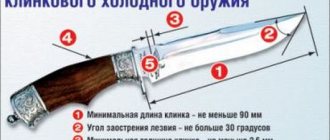Often, at the entrance to a store, a security guard persistently asks visitors to check their bags in the storage room. At the same time, you can see the inscription nearby: “The administration is not responsible for the safety of things in the cells.” Is this legal? No. Let's figure out what to do in such a situation.
Common ways to steal funds
To quickly and with impunity increase your capital, you first need to find out where you can steal money in the safest way.
The most common schemes for illegal enrichment:
- theft from bank cards, carding;
- spending of budget funds;
- black accounting;
- robbery of banks, ATMs, shops, houses and apartments;
- theft from cars;
- pickpocketing.
The bulk of thefts involve illegal withdrawals from bank cards. Stealing money from a plastic card is quite simple. This can be done without leaving home: using a telephone, Internet access and your own eloquence.
Often, ATMs are used for these purposes, on which special skimming equipment is installed, which allows you to read card data and write off funds from it.
Spending budget funds is available to officials who deal with money allocated for road repairs, real estate construction and other needs. Expense estimates are significantly inflated, and the difference ends up safely in the official's pocket.
This point also includes the creation of fictitious companies. They, as a rule, are intended specifically for “laundering” money stolen from the budget. Thanks to such schemes, interested parties can steal millions of rubles from the state for free. There are many more algorithms that allow you to steal money (tax schemes, unauthorized access to accounts on social networks), but ultimately they all boil down to the above.
Not every attacker is able to use high technology, which is why even now money thefts are often carried out through robbery and robbery.
What to do if things are stolen from a storage room?
Next steps:
1The main rule is to save the key with the cell number. This is the only confirmation of the fact of depositing the item and, in accordance with clause 2 of Art. 887 of the Civil Code of the Russian Federation, is equivalent to a concluded agreement. If you give it to store employees, it will be impossible to prove the transfer of property.
2Record what items were left behind. To do this, request in writing to provide video footage from surveillance cameras. To prove what items were in the bag, witness statements and any other facts will do.
3Based on this, make a calculation of the stolen goods. For this, preserved receipts are suitable, and if they are missing, your personal assessment.
4Write a complaint addressed to the administration of the outlet. Send the document by registered mail with a description of the attachment. You will find the address in the Buyer's Corner.
5 File a lawsuit if the store administration refuses to compensate for the damage voluntarily. As judicial practice shows, the plaintiffs' demands are satisfied in full.
How to steal money?
All fraud and theft schemes have a well-developed algorithm. Let's take a closer look at how and where you can steal money, as well as what is needed for this.
At an ATM
With some technical skills, you can steal cash directly from an ATM. One method requires access to the top of the device using a special splint.
This breaks the connection between the ATM software and the device itself that dispenses money (dispenser). After that, fake software is connected to the latter and the required command is given to issue cash.
For the second method, you will need a skimmer (reading device) and a hidden camera. The skimmer is attached to the hole for bank cards on the ATM, and the camera is installed in any place from which you can see the typed PIN code (for these purposes, you can also use an overhead keyboard that remembers keystrokes).
Video: Ways to steal money from plastic cards.
After the card owner inserts it into the device, all information on it remains on the skimmer. Then, using the received data and provided you know the PIN code, you can make a duplicate card and cash out the funds.
Hacking
Data on bank cards can be obtained without the use of special equipment, if the attacker is a hacker. It is enough to hack the server of a large bank and steal confidential information about the plastic cards of its clients.
Using this scheme, many criminals have already stolen more than one million rubles.
Bank or store robbery
Such an operation can only be carried out if there are accomplices. First, you need to carefully inspect the premises in which you plan to commit the theft, track all entrances and exits, and study the security system.
In order to have time to escape from law enforcement agencies, you also need to make sure that a car is waiting at the exit.
Black accounting
Working as an accountant and having access to company funds, an experienced financier will be able to regularly steal small amounts of money through fictitious transactions. For example, artificially inflate the company’s expenses (falsify checks or estimate documentation).
Pickpocketing
This type of theft occurs in crowded places, including public transport. During a stampede, it is easy to pull money and other valuables out of your pocket or bag. In addition, you can steal money from sleeping passengers on a train or bus. Yes, you can’t steal a million in one go this way, but if you work for a long time, you can save up.
Theft of funds through online services
To use this method, you first need to download the database of phone numbers. Such information is now publicly available on the Internet. Next, you can use several methods:
- Send messages with the text: “Your card is blocked, call back at +7ХХ...ХХ. Your bank (be sure to indicate the name of a popular banking institution).”
- Call clients yourself, pretending to be a security officer.
Under any pretext, you need to ask the owner for the card number and password to access online banking. After logging in, transfer funds to your account.
Robbery of houses and apartments
With this type of theft, criminals usually target a wealthy “client.” Then they track his daily routine (and that of his household) and, making sure that there is no one in the room, they break the lock and sneak into the house or apartment.
Theft from cars
Car owners often leave purses, bags, and wallets in the car, which can be seen through the car window. If an attacker knows how to hack a car alarm, then stealing money this way is as easy as shelling pears.
Types and methods of theft of goods by buyers
The basic principle that guides thieves is the same as in the case of their own employees - if the opportunity to steal exists, then it must be realized. And buyers usually have no less such opportunities than store employees.
A customer can try to steal something from a store in a variety of ways: steal the product, cheat when returning it or using a credit card, or steal cash from the cash register. After reading this chapter, you will learn how, when and what methods of theft are commonly used by customers and what you need to do to prevent them.
It should be noted that no matter what controls you put in place, they will not stop some customers from attempting to shoplift. What should you do if a dishonest buyer is caught by the hand? Below we will give some basic recommendations. But only you can determine the best way to prevent theft in your store. By the way, methods of combating theft are partly determined by the legal system and the current legislation of the country.
There are three basic rules that you need to follow if you have any doubts about the buyer’s honesty (just don’t take these rules as dogma - they only define the basic principles of your behavior).
a) You should see that the buyer took the goods and hid them.
b) Before presenting a claim to the buyer, observe him for a while after he hides the goods.
c) You need to be absolutely sure that the buyer has not paid for the goods.
If you have no doubt that a store visitor has not paid for a purchase, do not hesitate to detain him and call the police. Taking goods without paying for them is a crime. Because of such thefts, American store owners lose millions of dollars every day, and some simply go bankrupt.
On the other hand, do not forget about the safety of your workers. Moreover, this factor should be the main one: if the capture of a robber threatens the safety of store personnel, then it is better to let the thief leave, no matter how much the stolen goods are worth.
1. General information
Thieves use a variety of methods to steal goods from a store. The owner or manager of a store must first understand that dishonest customers are divided into two main categories: professional thieves and amateur thieves. “Amateurs” significantly outnumber professionals, but the losses caused by professionals are much more significant.
Professional thieves
They earn their living by shoplifting, reselling everything stolen (cases when a professional thief keeps something stolen for himself are extremely rare). Typically, the thief receives from the buyer from 25 to 50% of the retail price of the goods handed over. A characteristic detail: professionals try to steal goods in branded packaging, since this makes it easier to sell it to a buyer of stolen goods.
Naturally, in one visit to the store such a thief will try to steal the maximum possible number of units of goods (for example, up to ten packs of batteries). Therefore, it is very important that in the sales area such products are displayed on special holders that allow only one package to be removed at a time. Professionals visit the same store so often that the staff begins to mistake them for regular customers. The only problem is that they never buy anything! A professional thief “works” both alone and with a partner.
A loner, as a rule, tries to establish friendly relations with store staff and steals goods at a time when, trusting him, the sellers are busy with another buyer. But it also happens that he mixes with a crowd of other visitors and, trying not to attract attention to himself, stuffs the stolen goods into special pockets. Working with a partner makes the thief's task partly easier, since the partner (or partner) distracts the sellers' attention with special questions or awkward actions, giving him the opportunity to calmly steal the goods. Sometimes professionals “work” with children, who are used both as cover and as “pockets” in which stolen goods are taken out of the store. The income from such thefts is usually somewhat higher than that of a lone thief, but in this case the risk of being caught also increases (for example, due to unsuccessful actions or excessive talkativeness of a partner).
"Travelers"
“Travelers” are groups of thieves who wander from store to store, from city to city. This type of thieves steals not only goods, but also money.
Typically, in a store, a group of “travelers” disperses around the sales area. Then two or three people create some kind of chaos to distract attention. While store employees deal with them, the rest of the gang tries to steal either the goods on display or money from the cash register, and sometimes from the safe. If they are noticed doing this, then, taking advantage of their numerical superiority, they create fuss and confusion, involving ordinary buyers in the fray, after which they try to escape unnoticed. It is quite difficult to pursue them, since no one knows either them or the addresses where they might go.
Amateur thieves
The “amateur” does not steal for his own food. Very rarely they steal goods out of necessity, due to lack of money. It happens that an ordinary person is pushed to steal, for example, by friends or parents. But more often, amateurs steal simply out of nothing to do, for the thrill of sensations - among such thieves you can often find very wealthy people who have fun with thefts.
For amateurs, as in the case of store personnel, the basic principle applies: if there is an opportunity for theft, and the risk is not very great, then an attempt at theft will immediately follow. Or the thief knows in advance that the store owner will not contact the police (for example, he did not do this in the previous case).
2. Basic techniques used by kidnappers
Common theft
Shoplifters—professionals and amateurs alike—can hide stolen goods in their clothing or inside other merchandise. The fraudster pays for one type of product and takes away another along with it.
Scenario one: Professional thief
A professional thief regularly visits stores selling construction materials and equipment, posing as the owner of a construction company. In reality, he steals goods for resale, receiving approximately 30% of their retail price. Some of the stolen goods subsequently end up in markets, while others end up in competitors' stores.
A professional leaves the store with, say, 20 circular saw blades hidden in his belt, ten pieces each in front and behind. Over the course of 10 years, the average annual income of such a thief is $90 thousand. This means that the value of the goods he stole during this time was $270,000!
About 80% of professional thieves specialize in stores of a certain profile.
Control your weaknesses
• These stores provide poor customer service.
• Store staff are not trained in anti-theft techniques.
• Use equipment on the sales floor that does not allow the customer to take more than one item at a time.
.Many professional thieves use various “homemade items” at work - bags, boxes or “diplomats” with secret pockets in which they hide goods, or use a special bottom in the bag, which allows them to pick up the selected product and quietly take it out of the store. Often, theft specialists sew secret pockets into clothes, wear belts with hooks, or wear two pairs of trousers at the same time - the trousers are sewn tightly at the bottom, thereby forming one large pocket into which a thief can safely put a variety of goods without fear of them falling out.
A female thief can pretend to be pregnant using an ordinary pillow. Once in the store, she picks up more clothes and goes to the fitting booth. There the pillow is removed and placed in a bag, and neatly folded goods are placed in its place. The appearance of a pseudo-pregnant woman, naturally, does not change. Sometimes an “inflatable” pillow is used, into which the thief, after releasing the air, packs the stolen items.
In order to hide stolen goods, a variety of items are often used - umbrellas, newspapers, and other goods from the same store. In addition, there are often cases when your product is hidden in a pre-purchased branded package from another store. Therefore, the store owner should train cashiers to check all items that could be used as a container for theft, for example:
— brushes can be hidden in paint rollers;
— jewelry is placed in various boxes and bags;
— drills or punches are placed in garden watering hoses;
— a silk scarf easily fits in a jacket or coat pocket...
This list can be continued endlessly. Having taken any product, you must answer the questions for yourself: “Where would I hide it?” and “Can I put anything inside this item?” Train your employees to look at goods the same way, and a lot of petty thefts can be prevented.
Substitution of labels
Switching labels or price tags is another way to commit shoplifting. The fraudster removes the label from a discounted or simply cheaper product and attaches it to a more expensive one. If none of the staff notices the substitution, the buyer will pay a low price for some expensive item. Labels are easy to change only if they come off the product without damage.
The same method is used when stealing goods that have a label on the lid. Often, the manufacturer puts the same lids on jars containing the same product, but with different capacities. It costs nothing for a thief to take the lid from a smaller package and place it on a larger one. As a result, the swindler pays a lower price for a larger volume of goods.
Substitution of goods
Product substitution is an option for label substitution. For example, the cheap contents of one box are replaced by more expensive ones taken from another package. The scammer pays for a cheap product, but in fact takes away an expensive one.
3. Precautions
a) Meet each customer at the entrance and do not forget about his presence in the store.
b) Find a place in the store from which all customers can be seen.
c) Do not turn your back on the buyer.
d) Closely observe customers wearing baggy, bulky clothing or carrying baby strollers.
e) Goods that for some reason are not located where they should be, immediately return them to their place.
f) Place the product so that any shortage is immediately noticeable.
g) Do not display expensive or easily portable items near the exit of the store.
h) Be prepared for someone to distract your attention.
i) Regularly check the contents of printed product boxes.
j) Use labels that cannot be easily separated from one type of product and discreetly attached to another.
k) Do not put labels on the lids. This rule applies to all goods packaged in interchangeable containers.
Precautions for Travelers
a) If a group of customers enters the store, be alert.
b) Store personnel should not leave their jobs if such a group tries to cause any scandal.
c) Product displays must be locked at all times and their contents must be checked if any disturbance occurs.
d) Lock the safe. This should be done between any operations with its contents, even if you know that in a minute you will need to open it again.
e) Lock cash registers and do not leave them unattended. Remember that "travelers" know how to use the "no sale" key to open the cash drawer;
f) If you find any goods missing, call the police immediately.
Download: 1. E-book “Protecting the supermarket from theft” - Please Login or Register to access this content
Is it worth stealing money?
Theft of funds provides for criminal liability , which is regulated by Art. 158 of the Criminal Code of the Russian Federation. Depending on the amount of the stolen amount, the court determines the following types of punishment:
- up to 5 thousand rubles – imprisonment for up to 2 years, fine up to 80 thousand rubles;
- from 5 thousand to 250 thousand rubles. – imprisonment from 1 to 5 years, fine up to 200 thousand rubles;
- over 250 thousand rubles. – imprisonment for a period of 1.5 to 6 years, a fine of up to 500 thousand rubles.
The most serious crime is theft on an especially large scale (over 1 million rubles), for which the offender can be imprisoned for up to 10 years.
We should not forget about the moral side of the issue, since by stealing money, scammers actually take funds from ordinary citizens, and not from impersonal companies and banks. Perhaps the person needed the stolen money for treatment or to support his family. In any case, we do not advise you to resort to theft; it is better to ask people for money or try to earn money quickly. If you do not act within the framework of the law, you can ruin the lives of not only yourself, but also those people who depend on you.
Is it necessary to hand over things to storage lockers in stores?
From a legal point of view, the requirement to hand over a bag qualifies as coercion to enter into a contract. It is illegal because it contradicts Art. 421 of the Civil Code of the Russian Federation on freedom of concluding contracts. Moreover, the Retail Trade Ordinance prohibits requiring customers to deposit bags at the entrance to a supermarket. Thus, if you do not want to voluntarily leave personal items in the locker, then do not leave them: the law does not oblige you to do this.
If the guard insists, notify him that his actions are illegal - they violate Art. 426 of the Civil Code of the Russian Federation on the publicity of the contract. If this is not enough, invite an administrator. Notify him that you will write a complaint to Rospotrebnadzor about violation of trade rules. As a rule, claims disappear immediately.
Is the store responsible for bags in the locker?
Despite statements that the administration is not responsible for personal items deposited, this is not the case. Such liability exists according to Art. 426 and 924 of the Civil Code of the Russian Federation.
According to Art. 901 of the Civil Code of the Russian Federation, the establishment is obliged to compensate the cost of the missing property. According to paragraph 2 of Art. 401 of the Civil Code of the Russian Federation, the buyer is not obliged to prove that the store is to blame for the theft.
To defend your legal rights, you need to know them. Using the information from our article, you will not allow store employees to violate them.
Last updated: October 21, 2021
What to do if you are accused of theft and who will be punished in the end?
If you are accused of theft, it is advisable to remain calm and familiarize yourself with your national laws to avoid charges and penalties.
In this article we will tell you what types of thefts there are and what laws govern them, what rights does the person accused of theft have, who and how establishes the crime, what actions should the person accused of theft take.
Legislation Rights of the accused Composition of a crime or misdemeanor Object Object Means of evidence Actions of the accused party In the store Through statements If you are guilty Responsibility Final score
The legislative framework
False accusations of theft are common these days - in a supermarket, in a cafe, at work, a boss who wants to hide unexpected expenses accuses one of his employees of theft.
Moreover, accusations of theft can come from the most unexpected sources - from acquaintances, colleagues and even friends. Having become convinced of someone else’s guilt, a citizen files a complaint with the police, after which an investigation will be carried out and, if confirmed, a charge of theft will be brought under Article 158 of the Criminal Code of the Russian Federation.
However, if verification of the theft allegation shows that the accusation is fabricated, the applicant himself will be held accountable, but under Article 128.1 of the Criminal Code of the Russian Federation “On Defamation.”
It should be remembered that in almost any situation it is possible to fabricate charges of theft. Example: a student saw a phone on the table that one of the university students had forgotten, and took it so that it would not be stolen, and asked his colleagues who it belonged to. Therefore, this action can be classified as theft.
Rights of the accused
In accordance with Art. 51 of the Constitution of the Russian Federation, every citizen of the Russian Federation has the right not to testify against himself or his loved ones, therefore, if you are accused of theft, which you have no doubt about, you can remain silent until you contact a lawyer (or receive guaranteed free legal assistance) .
It is also important to remember the principle of the presumption of innocence, according to which the accused remains innocent until he is proven 100% guilty.
It does not matter whether the accusation comes from an individual or a legal entity. Until you provide sufficient evidence to prove your guilt, you will be presumed innocent and will not be subject to arrest or other measures.
A person who is unable to pay for the services of a private lawyer has the right to free legal assistance from the state.
Any citizen who is confident that his rights and legitimate interests have been violated can protect himself by contacting one of the law enforcement or supervisory authorities in accordance with Art. 128.1 of the Criminal Code of the Russian Federation or Art. 152 of the Civil Code of the Russian Federation.
Corpus delicti
According to current regulations, only law enforcement officials (police, prosecutors) have the right to establish and confirm a crime.
Therefore, when a theft is reported, the police will conduct an investigative investigation to verify the information contained in the report. If the police refuse to carry out such an investigation, the applicant has the right to again appeal to a higher authority - the prosecutor's office.
Although this oversight body is not competent to review citizen petitions, its staff can direct law enforcement officials to focus on a specific citizen petition.
When it comes to filing a theft claim with the courts, it is advisable to do so only if the complainant has sufficient evidence that a crime has been committed.
Object, subject
The objective side of theft is property relations in one form or another. The subjective side is the property and money of other people.
In this case, we are talking about the hidden theft of property to which the criminal has no rights. The “secret” theft status will be granted in the following cases:
- If the theft of property occurred in the presence of the owner, but the owner did not notice it; If the theft was seen by several unfamiliar witnesses; If the theft of property occurred during the absence of the owner; If the witnesses to the theft were incompetent people unable to objectively perceive reality, i.e. mentally retarded, for example, with schizophrenia, bipolar disorder, etc.; If the witnesses to the crime are citizens who knew about what was happening, but did nothing to prevent it.
The subject of this crime is direct intent, and the motive is calculation.
The executor is a legally capable person over 14 years of age.
Methods of proof
To prove the commission of a prohibited action - theft - as a rule, people who became unwitting eyewitnesses of the incident are brought into the case. CCTV footage (if available), audio recordings and photographs are also used.
The court considers any evidence available to the plaintiff and then determines the appropriate penalty.
Actions of the accused party
The following are the most common situations: shoplifting and theft charges based on a complaint.
In the shop
Example situation: you go to the grocery store, buy groceries for dinner, pay at the checkout and go to the exit. Suddenly a security guard stops you and demands to see the contents of your bag. Please remember that such requests are legally unlawful and you should not respond to them unconditionally. The first step is to find the reason for the interrogation. If the ranger provides a good enough reason, ask when law enforcement (police) will arrive on the scene, as they are the only ones legally authorized to do so.
In addition, two witnesses should be invited to the search site, with whom a report will be drawn up after examining the contents of the package. This will display the search results.
If the search was not carried out properly, the person being searched has the right to demand monetary compensation for moral damages. To do this, you need to prepare a statement of claim in the prescribed form and submit it to the court in one of the possible ways.
Through statements
If you are charged with theft, the first step is to ask the accused to report the theft to the police by filling out a report. In practice this rarely happens because the accused does not want to be held liable for making a false statement, which is a criminal offence.
Example: A person went to the police to accuse you of committing a crime, such as theft, and testified to this by filing a report. In turn, you can file a defamation report with the police to refute the allegations.
An investigation will be launched into the allegations and the results will be available within three to ten days.
If you are to blame
If you are caught red-handed, it is best to admit the crime and take the initiative to pay compensation to the person or organization you robbed.
You can also try to make peace with the victim, but the likelihood that he will agree is minimal.
Responsibility
If the accusation of theft turns out to be false, the perpetrator may face administrative punishment or forced labor (Article 218.1 of the Criminal Code).
False statements are punishable under Art. 307 of the Criminal Code of the Russian Federation, according to which the perpetrator is subject to an administrative fine, forced or corrective labor, temporary arrest or imprisonment.
If the theft is confirmed, the type and amount of penalties will depend on the amount of damage caused. If it is less than 5,000 rubles, the perpetrators will be held accountable under Art. 7.27 of the Code of Administrative Offenses of the Russian Federation, if it exceeds 5 thousand rubles - according to Art. 158 of the Criminal Code of the Russian Federation.
Bottom line
Before you are accused of theft, it is recommended to verify all information as thoroughly as possible, collect sufficient evidence and find witnesses. Because the consequences, if a false statement is confirmed, will be very unfortunate.









